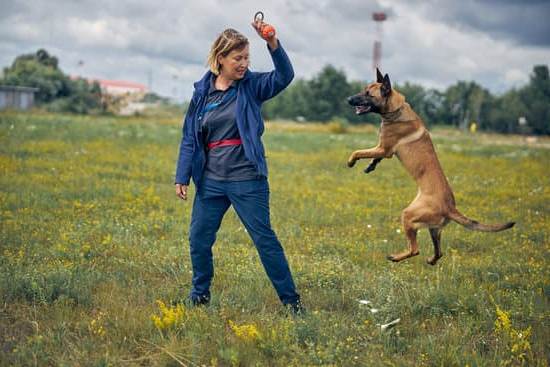Are you struggling with training your dog? Dog training boarding schools offer a comprehensive solution for pet owners seeking professional guidance and support. These specialized facilities provide an immersive environment for dogs to learn and develop essential skills while in the care of experienced trainers. The concept of dog training boarding schools has gained popularity in recent years due to their effectiveness in addressing various behavior and obedience issues in dogs.
Enrolling a pet in a dog training boarding school comes with numerous benefits, including socialization, obedience, and behavior modification. By being surrounded by other dogs and interacting with trainers on a daily basis, dogs can improve their social skills and manners. Additionally, the structured environment at these schools helps instill discipline and teach dogs to follow commands, resulting in better obedience at home.
When selecting a dog training boarding school for your pet, it is crucial to consider factors such as accreditation, facilities, and training methods. Accredited schools uphold high standards of professionalism and adhere to ethical practices in their training programs.
The quality of facilities also plays a significant role in the overall experience, as well-maintained grounds contribute to a safe and comfortable learning environment for pets. Furthermore, understanding the training methods used by the school is essential to ensure they align with your pet’s needs and your preferences as an owner.
Benefits of Dog Training Boarding Schools
When it comes to training your dog, enrolling them in a dog training boarding school can offer numerous benefits. One of the key advantages is the opportunity for socialization. Many pet owners struggle to provide their dogs with adequate social interaction, which can lead to behavioral issues such as aggression or anxiety. At a dog training boarding school, dogs have the chance to interact with other pets in a controlled environment, helping them learn proper social skills and behavior.
In addition to socialization, obedience training is another major benefit of enrolling your pet in a dog training boarding school. These programs focus on teaching dogs basic commands and manners, making them more obedient and easier to handle in various situations. Whether it’s walking on a leash without pulling or responding to commands like sit and stay, obedience training can greatly improve the relationship between pet and owner.
Furthermore, behavior modification is a crucial aspect of many dog training boarding schools. Dogs with behavioral issues such as aggression, fearfulness, or separation anxiety can receive specialized attention from experienced trainers who understand how to address these specific problems. Through targeted behavior modification programs, dogs can learn alternative coping mechanisms and develop healthier responses to triggers that may have previously caused stress or discomfort.
Overall, the benefits of enrolling a pet in a dog training boarding school are vast. These programs not only provide necessary socialization opportunities but also focus on obedience training and behavior modification tailored to each individual dog’s needs.
What to Look for in a Dog Training Boarding School
When choosing a dog training boarding school for your pet, there are several important factors to consider in order to ensure that you are selecting the best option for your furry friend. One crucial aspect to look for is accreditation. Accredited boarding schools adhere to industry standards and best practices in dog training, ensuring that your pet will receive high-quality care and instruction.
Additionally, facilities play a key role in the overall experience of your pet. Look for a boarding school with clean, safe, and comfortable facilities that cater to the needs of the dogs in their care.
Another essential factor to consider when choosing a dog training boarding school is the training methods used by the staff. It’s important to inquire about the specific techniques and approaches employed in the training programs offered at the school. Positive reinforcement methods are widely regarded as effective and humane ways of training dogs, so make sure to choose a boarding school that utilizes this approach.
Furthermore, it’s important to consider the staff’s qualifications and experience when evaluating potential dog training boarding schools. Look for schools with knowledgeable and experienced trainers who have a proven track record of successfully working with dogs of various breeds and behavioral issues. By taking these factors into account, you can make an informed decision when selecting a dog training boarding school for your beloved pet.
Overall, choosing the right dog training boarding school is crucial for your pet’s well-being and development. By considering accreditation, facilities, training methods, and staff qualifications, you can ensure that your pet receives top-notch education and care during their time at the boarding school. Investing time in researching and visiting potential schools will ultimately lead to finding the perfect fit for your furry companion’s needs.
Types of Training Programs Offered
When looking for a dog training boarding school for your pet, it’s important to consider the types of training programs offered. These programs can vary widely depending on the school, so it’s essential to find one that aligns with your pet’s needs and your goals as an owner. Here are some common types of training programs you might come across when researching boarding schools for your dog.
Basic Obedience Training
This type of program is ideal for puppies or adult dogs who need to learn fundamental commands such as sit, stay, heel, and come. Basic obedience training sets the foundation for good behavior and establishes clear communication between you and your dog.
Advanced Training
For dogs who have already mastered basic commands, advanced training programs offer more challenging exercises and activities. This can include off-leash obedience, agility training, or even specialized tasks like therapy dog training.
Specific Behavior Modification Programs
Some dogs may have behavioral issues that require specialized attention and training. Boarding schools may offer programs tailored to address specific problems such as aggression, separation anxiety, excessive barking, or fear-based behaviors. These programs often involve a more personalized approach to help your dog overcome their challenges.
As you evaluate different dog training boarding schools, consider which type of program would best suit your pet’s needs. Whether they need to start with the basics or require more intensive behavior modification, finding the right fit will ensure that your dog gets the most out of their education at a boarding school dedicated to their well-being.
Ultimately, understanding what each type of program entails and how it aligns with your pet’s needs will lead you to select a dog training boarding school that provides the best environment for growth and development.
Case Studies
One of the most effective ways to understand the impact of dog training boarding schools is by looking at real-life case studies of dogs who have benefited from attending these programs. These case studies can provide valuable insight into the transformation that can occur in a dog’s behavior and overall well-being as a result of enrolling in a training boarding school.
For example, one case study involves a young Labrador retriever named Max who was exhibiting signs of aggression towards other dogs and had difficulty following basic commands. After enrolling in a 4-week intensive obedience program at a reputable dog training boarding school, Max showed significant improvement in his behavior. His owners reported that he was more responsive to commands, displayed better socialization with other dogs, and overall seemed more relaxed and happy.
Another case study involves Molly, a rescue dog with severe separation anxiety. Her owners were struggling to leave her alone at home without her displaying destructive behavior. After attending a specialized separation anxiety program at a dog training boarding school, Molly showed remarkable progress in managing her anxiety. She was able to stay alone for longer periods without exhibiting destructive behavior and became more independent and confident.
These case studies highlight the positive impact that dog training boarding schools can have on the behavior and well-being of dogs. They serve as powerful examples of how targeted training programs offered at these schools can address specific behavioral issues and lead to significant improvements in a pet’s quality of life.
| Dog Name | Behavior Issue | Training Program | Progress |
|---|---|---|---|
| Max (Labrador retriever) | Aggression towards other dogs | 4-week intensive obedience program | Improved response to commands, better socialization with other dogs, overall relaxation and happiness |
| Molly (rescue dog) | Severe separation anxiety | Specialized separation anxiety program | Better management of anxiety, independence, confidence |
Choosing the Right School for Your Dog
When it comes to choosing the right dog training boarding school for your pet, there are several factors to consider in order to ensure that you find the best fit for their individual needs and goals. One of the most important considerations is the specific training programs offered by the boarding school.
Some facilities may specialize in basic obedience training, while others may offer more advanced programs such as agility training or specific behavior modification courses. It’s essential to assess what type of training your dog requires and look for a boarding school that provides those services.
In addition to the types of training programs offered, accreditation and facilities are other critical aspects to take into account when selecting a dog training boarding school. Accreditation ensures that the facility meets certain standards of care and professionalism, while well-maintained and safe facilities are crucial for your pet’s overall well-being.
Moreover, it’s important to inquire about the qualifications and experience of the trainers at the boarding school, as their expertise will greatly impact your dog’s learning experience.
Another consideration when choosing a dog training boarding school is the training methods employed by the facility. Positive reinforcement techniques are often favored by many pet owners, so it’s essential to inquire about the methods used by the trainers at a prospective boarding school. Communication between the trainers and pet owners is also vital for ensuring consistency in training methods at home after completing a program at the boarding school.
Overall, selecting a dog training boarding school involves careful research and consideration of multiple factors like specialized programs offered, accreditation, facilities, staff qualifications, and training methods used. By taking these aspects into account, pet owners can make an informed decision and choose a boarding school that best suits their dog’s needs and goals.
| Factors to Consider | Considerations |
|---|---|
| Training Programs Offered | Basic obedience vs advanced programs |
| Accreditation and Facilities | Ensuring standards of care and safety |
| Trainers’ Qualifications | Experience and expertise in positive reinforcement techniques |
The Training Process
The daily routines at a dog training boarding school are designed to provide structured learning opportunities for the dogs. This often includes scheduled training sessions, socialization activities with other dogs, exercise time, and rest periods. The consistent routine helps to establish good behavior habits and reinforce the training principles effectively.
Training techniques used at these schools may vary depending on the approach of the facility. Positive reinforcement methods are commonly employed to encourage desired behaviors while discouraging negative ones. Trainers may use rewards such as treats or praise to reinforce good behavior and redirect or correct unwanted behavior using gentle techniques that prioritize the well-being of the dog.
Overall, the purpose of the training process at a dog training boarding school is to equip pets with valuable skills, improve their behavior, and strengthen the bond between pets and their owners. By providing structured learning environments alongside professional guidance, these schools offer an effective way for pet owners to address behavioral issues while improving their pet’s overall well-being.
- Assessment and evaluation
- Structured daily routines
- Positive reinforcement techniques
Aftercare and Follow-Up
After completing a training program at a dog training boarding school, it’s essential for pet owners to understand the importance of aftercare and follow-up. This support is crucial for ensuring that the skills and behaviors learned during the program are maintained and reinforced in the dog’s daily life.
Ongoing training and behavior maintenance tips provided by the boarding school can make a significant difference in solidifying the progress made by the dog, as well as improving their overall quality of life.
The transition from a structured training environment to home life can be challenging for dogs, and having access to aftercare support can greatly assist pet owners in implementing the techniques and methods learned at the boarding school. Whether it’s through follow-up sessions, continued guidance from trainers, or access to resources and materials, aftercare support plays a vital role in helping dogs adjust to their new behaviors and habits.
Furthermore, ongoing training and behavior maintenance tips not only benefit dogs but also empower pet owners with the knowledge and skills necessary to continue reinforcing positive behaviors at home. With guidance on how to handle specific situations, address potential setbacks, and maintain consistency in training practices, pet owners can effectively support their dog’s development beyond the confines of the boarding school.
By prioritizing aftercare and follow-up, pet owners can ensure that their investment in a dog training boarding school continues to yield long-term benefits for their beloved four-legged companions.

Welcome to the blog! I am a professional dog trainer and have been working with dogs for many years. In this blog, I will be discussing various topics related to dog training, including tips, tricks, and advice. I hope you find this information helpful and informative. Thanks for reading!





